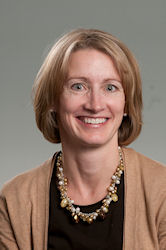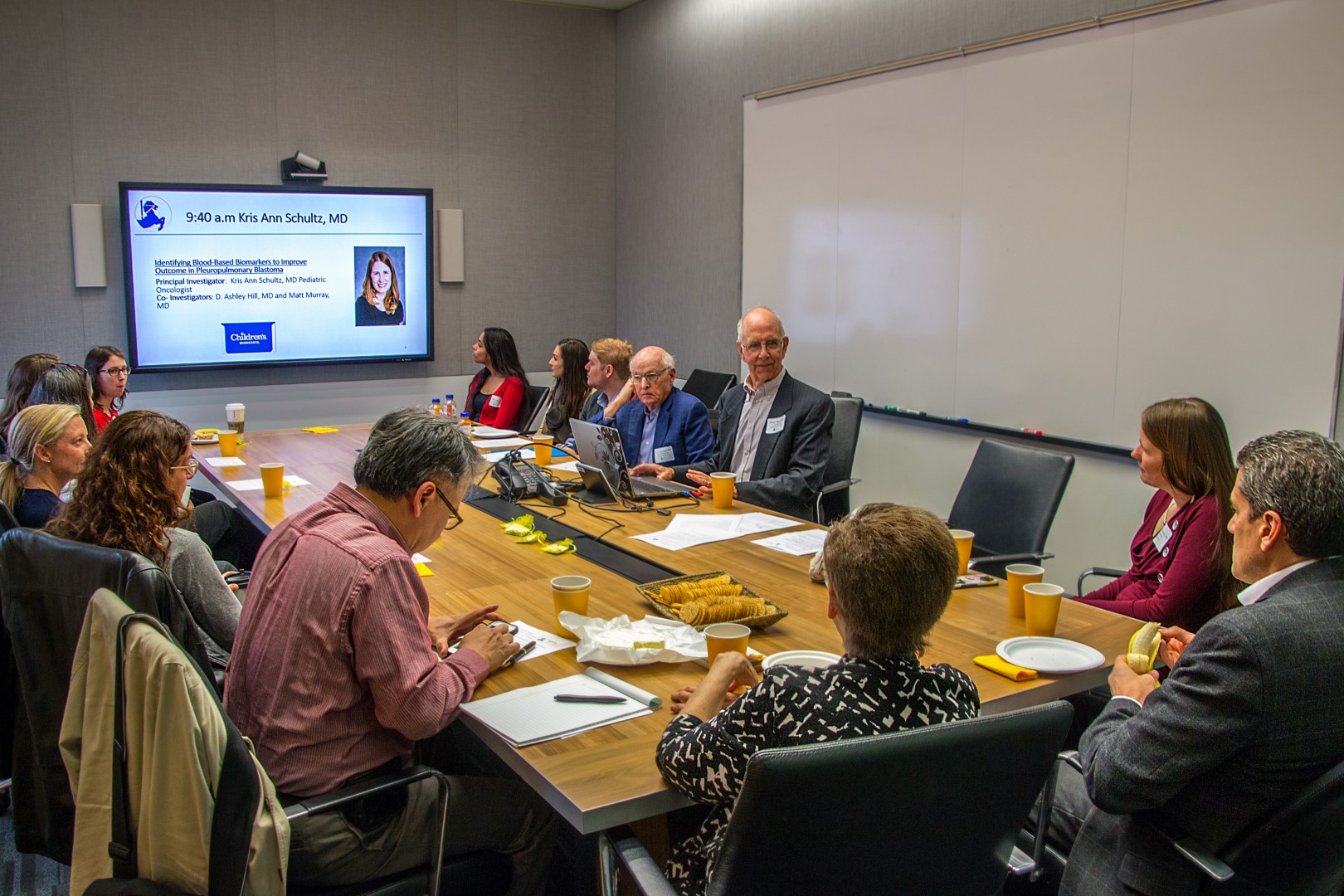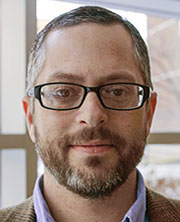
In the three years since she first attended a Rein in Sarcoma event, pediatric oncologist Dr. Nancy McAllister has become deeply engaged in its mission.
As a Children’s Hospitals and Clinics physician, She is connecting her patients with RIS, welcoming patients at the summer Party and partnering with the Red Flags team to increase awareness throughout the community. We are so excited about this collaboration.
From the start Dr. McAllister always wanted to be a pediatric oncologist. She took a slight detour, however, after completing her pediatric residency. Her husband had a medical job in Idaho through his military commitment, and Nancy began practicing as a regular pediatric physician. For a time, she thought the plan for their life might have shifted. She and her husband could have a family and raise their children, while she worked a manageable schedule as a pediatric doctor.
Then one day, she looked at her husband and said, “This is not why I went to medical school.” Her passion for pediatric oncology was still strong. Fortunately, her husband supported this return to her original vision. She took her Fellowship in Pediatric Hematology and Oncology in Utah and was fortunate to study under a great mentor, Karen Albritton. Dr. McAllister gravitated to Dr. Albritton because of their personal connection and Dr. Albritton’s excellence, and also because of Nancy’s affinity for Dr. Albritton’s patients. Dr. Albritton was focused on treating sarcoma, so Nancy too began to develop this specialty.
After Dr. Albritton left Utah, Dr. McAllister led the sarcoma team there for two years. Then a colleague of hers traveled to Minnesota to interview for an open job at Children’s Hospitals of Minnesota. He returned and said to Nancy: “Well, I found your dream job.”
Patients First
Although she had not been looking for a change and could have stayed happily in Utah with her fine team there, Dr. McAllister did go to Minnesota to interview for the Children’s job. She “fell in love” with the opportunity and her husband was happy to move back with her, where they would be closer to their family roots.
What did Dr. McAllister like so much? “The ability to focus on managing patients, first.” Although research and other interests could be pursued if desired, “first and foremost, you get to develop programs and figure out how to manage patients well.” What Dr. McAllister had always wanted to focus on was treating patients. This opportunity offered a great chance to do that, in an outstanding setting.
Since 2006 Dr. McAllister has worked at Children’s, where she serves as a medical oncologist treating pediatric patients with sarcoma. She also focuses on children who have head and neck cancers.
For her sarcoma patients, Dr. McAllister collaborates with the University of Minnesota. Dr. Denis Clohisy and his team perform all the surgeries, since they have so much talent and experience. She works with him to develop the treatment plan for gaining local control, then each does their part. The biggest barrier to their collaboration? A better system for allowing the surgical team to review images and scans taken through Children’s would be great!
Joining the RIS Mission
I was privileged to invite Nancy into the RIS community about three years ago. My neighbor, pediatric oncologist Dr. Joanna Perkins, had been a vital resource for me as I worked to understand my own treatment options for sarcoma in 2007. Once I learned how wonderful RIS was, I shared the Wyckoffs’ interest in deepening our collaboration with Children’s and their patients. So I asked Joanna about this possibility, and she referred me to Nancy
From the start, Dr. McAllister was an engaged participant. In 2009, she and her colleague Dr. Julie Chu attended the Party to celebrate along with survivors. By the 2011 Party, Drs. McAllister and Chu were serving patients and families at the picnic. For 2012, the Children’s contingent will include Drs. McAllister and Chu along with nurse practioners Missy Christensen and Lori Ranney and nurse Cindy Sawtell all of whom work with sarcoma patients.
Their involvement is not limited to the Party. When she was asked to become part of the Red Flags initiative, Dr. McAllister was “excited and enthusiastic to be part of that.” She cares about improving education and awareness, because she thinks “this could save lives.” She and Dr. Chu are collaborating with Theresa Baultrippe, Sue Wyckoff, and several other physicians from the University of Minnesota and elsewhere to develop materials for use with both professionals and lay people.
Children’s has a great outreach program already established through many Minnesota locations outside the Twin Cities metro area. Dr. McAllister would like to bring the sarcoma message out, using this network. Dr. McAllister also appreciated the chance to take part in the recent RIS Stakeholders’ Dialogue meeting, led by Lisa Griebel. “What was amazing to me about that event,” she said, is that a huge group of people came together for a few hours and shared many ideas “in a meaningful way,” and this will translate into a tangible and strategic plan. She has found her time with RIS teams to be well spent. She also found it “so great to have the historical perspective, through the timeline,” for where the group has been.
A Future Dream
Dr. McAllister finds it “such an honor and a privilege to walk through this very difficult time” with children and families facing cancer. She is able to establish deep relationships with people “who are so vulnerable, so needing.” Thankfully, the outcome often can be health and life.
Over time, outcomes are improving for more people. And there is hope for even more improvement, especially since one “beauty of the pediatrics world” is that there is a well-established process for conducting clinical trials that will help develop better treatments. In the meantime, as doctors advance the science, national teams design uniform treatment strategies that use the best science available now. This allows children to receive the best possible care, no matter where they live.
Dr. McAllister seriously hopes the day comes, in a decade or two, when doctors will look back at current practices and say, “I can’t believe we did that.” She hopes there are advances, for example, in better utilizing the body’s immune system to treat itself, or in targeting specific molecular or genetic changes. Certain sarcomas “cry out” for targeted therapies, like Ewing’s sarcoma and synovial sarcoma, given what we know about the tumors.
That first day, driving to the Party, Nancy McAllister and Julie Chu weren’t really sure what kind of an event they would be attending, or what kind of group this was. We are so happy that they found the group meaningful, and have been willing to make such meaningful contributions of their own. Here’s to our continued mission!
By Christin Garcia



